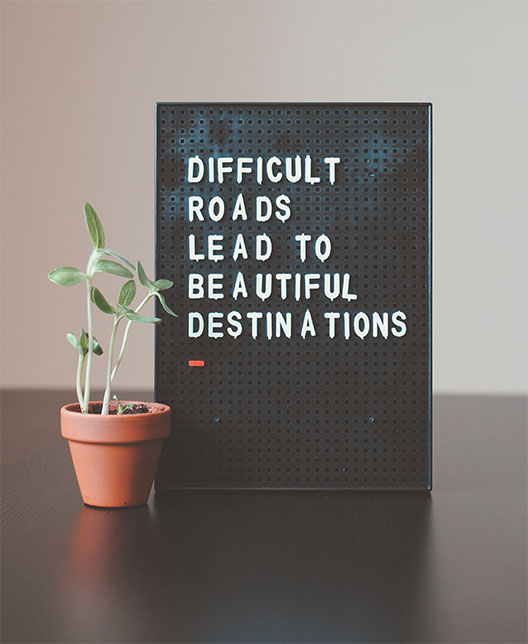
The Benefits of Composting and How to Get Started
Introduction
In a world where sustainability and environmental consciousness are becoming increasingly important, composting stands out as a simple yet powerful way for individuals to make a positive impact. Composting not only reduces waste but also enriches soil, conserves resources, and mitigates climate change. In this blog post, we'll delve into the many benefits of composting and provide you with practical steps to get started on your own composting journey.
The Environmental Impact of Composting
1. Reducing Waste
One of the most immediate and tangible benefits of composting is the reduction of household waste. Organic materials, such as food scraps and yard waste, make up a significant portion of the waste that ends up in landfills. By composting these materials, you divert them from the waste stream, reducing the burden on landfill capacity and decreasing the production of harmful methane gas.
2. Improving Soil Health
Compost is often referred to as "black gold" for gardeners and farmers because of its ability to improve soil health. When added to soil, compost enhances its structure, making it better at retaining water and nutrients. This, in turn, leads to healthier plants with improved resistance to pests and diseases. Compost also introduces beneficial microorganisms to the soil, which play a crucial role in nutrient cycling.
3. Conserving Resources
Composting plays a crucial role in resource conservation. When you compost organic matter, you're essentially recycling it into a valuable resource for your garden or yard. This reduces the need for chemical fertilizers and encourages a more sustainable approach to gardening and agriculture.
4. Mitigating Climate Change
Landfills are a significant source of methane, a potent greenhouse gas that contributes to global warming. When organic materials decompose in landfills without access to oxygen, they release methane into the atmosphere. Composting, on the other hand, allows these materials to break down aerobically, minimizing methane emissions. By composting, you're helping to combat climate change in your own small but meaningful way.
The Benefits for Your Garden
5. Richer, Healthier Soil
If you're an avid gardener, you'll quickly come to appreciate the benefits of compost in your garden. Compost enriches the soil with essential nutrients, such as nitrogen, phosphorus, and potassium, providing a balanced diet for your plants. It also helps maintain optimal soil pH levels, which is crucial for plant growth.
6. Improved Plant Growth
Plants grown in compost-enriched soil tend to thrive. They develop stronger root systems, produce more vibrant foliage, and yield larger and tastier fruits and vegetables. Whether you have a small backyard garden or a larger agricultural plot, compost can significantly boost your plant's productivity.
7. Water Conservation
Compost-enhanced soil retains moisture more effectively, reducing the need for frequent watering. This is especially beneficial in regions prone to drought or for gardeners looking to conserve water resources. By using compost, you can enjoy a lush and healthy garden while reducing your water usage.
How to Get Started with Composting
Now that you're aware of the numerous benefits of composting, let's explore how to get started. Composting can be tailored to fit your lifestyle, whether you have a sprawling backyard or live in an urban apartment. Here's a step-by-step guide to help you begin your composting journey:
Step 1: Choose a Composting Method
There are various composting methods to choose from, including:
- Backyard Composting: This is suitable if you have a yard or garden space. You can use a compost bin, tumbler, or create a simple pile.
- Indoor Composting: If you live in an apartment or lack outdoor space, consider vermiculture (worm composting) or book ashi composting, which can be done indoors or on a small balcony.
- Community Composting: Some communities offer composting services where you can drop off your organic waste, which is then processed at a central facility.
Choose the method that best suits your living situation and goals.
Step 2: Gather Composting Materials
To create compost, you'll need a mix of green (nitrogen-rich) and brown (carbon-rich) materials. Greens include kitchen scraps like fruit and vegetable peels, coffee grounds, and grass clippings. Browns include items like dried leaves, straw, and newspaper. Avoid adding diseased plants, meat, dairy, and oily foods to your compost.
Step 3: Build Your Compost Pile or Bin
If you're doing backyard composting, start by layering your green and brown materials in your compost bin or pile. Maintain a balance between the two, aiming for a roughly equal mix. Aerate your compost regularly by turning or stirring it to ensure proper decomposition.
Step 4: Maintain Your Compost
Composting is an ongoing process. Keep your compost moist, like a wrung-out sponge, and monitor its progress. Depending on the method and environmental conditions, you can expect your compost to be ready in a few months to a year.
Step 5: Harvest Your Compost
Once your compost has darkened and has a crumbly texture, it's ready to use in your garden. Use a screen or simply sift it by hand to remove any large, un composted materials. Your finished compost is a valuable resource that will improve the health and fertility of your soil.
Tips for Successful Composting
- Chop or shred larger materials to speed up decomposition.
- Avoid adding pet waste or plants treated with pesticides.
- Keep your compost pile covered to regulate moisture levels and prevent pests.
- If you're using indoor composting methods, follow the specific instructions for vermiculture or bokashi composting systems.
- Use your compost in your garden as a soil amendment, mulch, or potting mix component.
Conclusion
Composting is a simple yet effective way to reduce waste, improve soil health, conserve resources, and combat climate change. Whether you're a dedicated gardener or someone looking to reduce their environmental footprint, composting offers a host of benefits. By following the steps outlined in this guide, you can get started on your composting journey and enjoy the rewards of healthier plants, richer soil, and a more sustainable lifestyle. So, why wait? Start composting today and make a positive impact on your environment and community.








